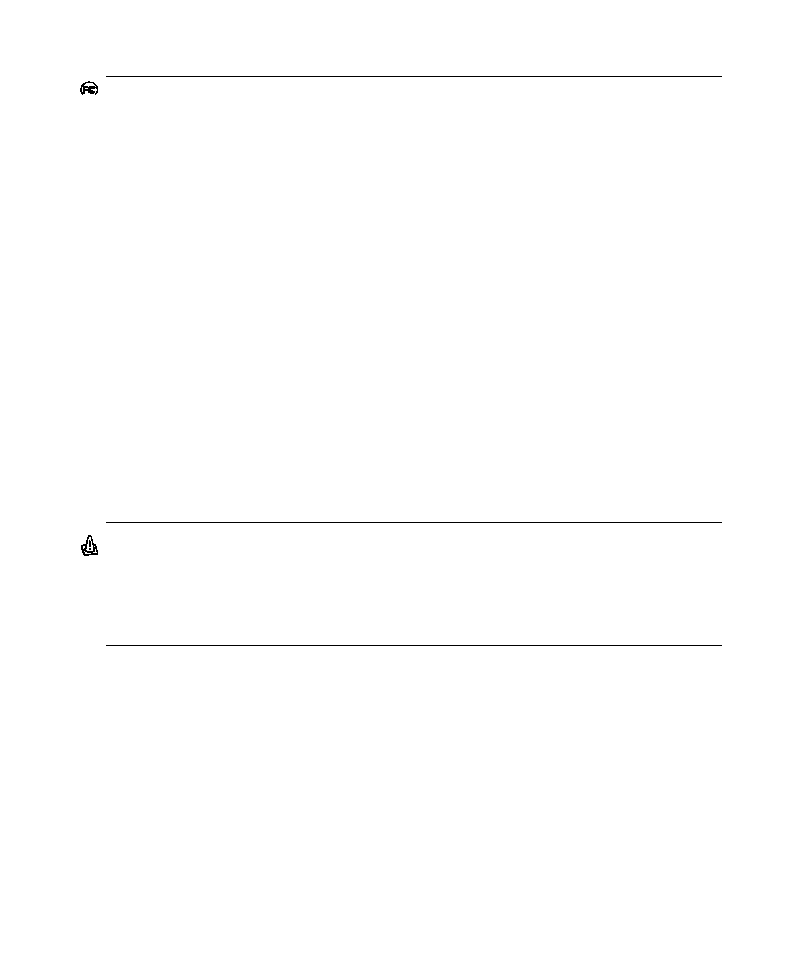
65
付録
A
Reprinted from the Code of Federal Regulations #47, part 15.193, 1993. Washington DC:
Office of the Federal Register, National Archives and Records Administration, U.S. Govern-
ment Printing Office.
Canadian Department of Communications Statement
This digital apparatus does not exceed the Class B limits for radio noise emissions from
digital apparatus set out in the Radio Interference Regulations of the Canadian Depart-
ment of Communications.
This Class B digital apparatus complies with Canadian ICES-003.
(Cet appareil numérique de la classe B est conforme à la norme NMB-003 du Canada.)
For use with AC Adaptor Model (Pour Utiliser Avec Modele): PA-1121-02 (120W), ADP-90FB (90W), ADP-
65DB (65W)
WARNING! The use of a shielded-type power cord is required in order to meet FCC
emission limits and to prevent interference to the nearby radio and television reception.
It is essential that only the supplied power cord be used. Use only shielded cables to
connect I/O devices to this equipment. You are cautioned that changes or modifica-
tions not expressly approved by the party responsible for compliance could void your
authority to operate the equipment.
Federal Communications Commission Statement
This device complies with FCC Rules Part 15. Operation is subject to the following two
conditions:
・ This device may not cause harmful interference, and
・ This device must accept any interference received, including interference that may
cause undesired operation.
This equipment has been tested and found to comply with the limits for a class B digital
device, pursuant to Part 15 of the Federal Communications Commission (FCC) rules. These
limits are designed to provide reasonable protection against harmful interference in a
residential installation. This equipment generates, uses, and can radiate radio frequency
energy and, if not installed and used in accordance with the instructions, may cause harmful
interference to radio communications. However, there is no guarantee that interference
will not occur in a particular installation. If this equipment does cause harmful interference
to radio or television reception, which can be determined by turning the equipment off
and on, the user is encouraged to try to correct the interference by one or more of the
following measures:
・ Reorient or relocate the receiving antenna.
・ Increase the separation between the equipment and receiver.
・ Connect the equipment into an outlet on a circuit different from that to which the
receiver is connected.
・ Consult the dealer or an experienced radio/TV technician for help.

